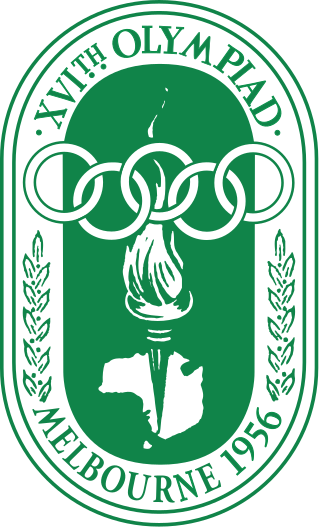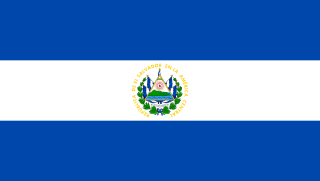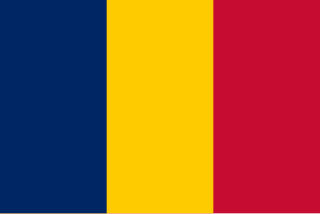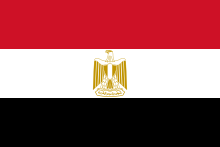
The 1956 Summer Olympics, officially the Games of the XVI Olympiad and officially branded as Melbourne 1956, were an international multi-sport event held in Melbourne, Victoria, Australia, from 22 November to 8 December 1956, with the exception of the equestrian events, which were held in Stockholm, Sweden, in June 1956.

The 1976 Summer Paralympics, branded as Torontolympiad – 1976 Olympiad for the Physically Disabled, was the fifth Paralympic Games to be held. They were hosted by Toronto, Ontario, Canada, from 3 to 11 August 1976, marking the first time a Paralympics was held in the Americas and in Canada. The games began three days after the close of the 1976 Summer Olympics in Montreal.
The 1980 Summer Olympics, officially known as the Games of the XXII Olympiad, were an international multi-sport event held in Moscow, Russian SFSR, Soviet Union from 19 July to 3 August. A total of 5,179 athletes representing 80 National Olympic Committees (NOCs) participated in 203 events in 22 sports. They were the first Games to be staged in a communist nation.

The 1980 Summer Olympics boycott was the largest boycott in Olympic history and one part of a number of actions initiated by the United States to protest against the Soviet invasion of Afghanistan. The Soviet Union, which hosted the 1980 Summer Olympics in Moscow, and its satellite states later boycotted the 1984 Summer Olympics in Los Angeles.

Switzerland has sent athletes to compete in every Games since it first participated at the Olympic Games at the inaugural 1896 Games. Switzerland boycotted the 1956 Summer Olympics events held in Melbourne in protests of the Soviet invasion of Hungary, but participated in the equestrian events for those Games held in Stockholm, Sweden earlier that year, where the Swiss dressage team won the bronze medal.

Egypt boycotted the 1956 Summer Olympics in Melbourne, Australia, because of the British and French involvement in the Suez Crisis. The equestrian events for the 1956 Games, however, were held in Stockholm, Sweden, five months earlier, due to Australian quarantine regulations, and three Egyptian riders competed in the show jumping events. None of the athletes won individual medals and they failed to place in the team competition due to one rider's failure to finish the individual tournament.

Ghana first participated at the Olympic Games in 1952, when it was known by the colonial name of Gold Coast. The nation has sent athletes to compete in most Summer Olympic Games since then, missing the 1956 Games, boycotting the 1976 Games in protest of the participation of New Zealand, and joining the American-led boycott of the 1980 Summer Olympics. Ghana participated in the Winter Olympic Games for the first time in Vancouver in 2010.

Cameroon first participated at the Olympic Games in 1964, and has sent athletes to compete in every Summer Olympic Games since then. The nation withdrew from the 1976 Summer Olympics after three days of competition, to join the broad African boycott in response to the participation of South Africa, which still had sporting links with apartheid South Africa. Cameroon also participated in the Winter Olympic Games on one occasion, in 2002, with a single representative, Isaac Menyoli.

Algeria first competed at the Olympic Games in 1964, and has participated in every Summer Olympic Games since then, except for the boycotted 1976 Summer Olympics. Algeria has also sent athletes to the Winter Olympic Games on three occasions. The National Olympic Committee for Algeria is the Comité Olympique Algérien, founded in 1963.

Athletes from Germany have taken part in most of the modern Olympic Games held since 1896. Germany has hosted three Olympic Games, in 1936 both the Winter and Summer Games, and the 1972 Summer Olympics. In addition, Germany had been selected to host the 1916 Summer Olympics as well as the 1940 Winter Olympics, both of which had to be cancelled due to World Wars. After these wars, Germany was banned from participating in the 1920, 1924 and 1948 Olympics.

Israel has competed at the Olympic Games as a nation since 1952. Its National Olympic Committee was formed in 1933, during the British Mandate of Palestine. Israel has sent a team to each Summer Olympic Games since 1952, and to each Winter Olympic Games since 1994. Israel became a member of the European Olympic Committees (EOC) in 1994. At the 2024 Summer Olympics, Israel won seven Olympic medals, the most up until this point, breaking Israel's record for Olympic medals per Olympics.

The Netherlands first sent athletes to the Olympic Games in 1900, and has participated in almost all Games since then with the exception of 1904 Summer Olympics in St. Louis. The Netherlands boycotted the 1956 Summer Olympics in Melbourne as a protest against the Soviet invasion in Hungary just a few weeks before the beginning of the Games; however, one Dutch rider competed in the 1956 equestrian events, held in Stockholm a few months before the rest of the Games.

New Zealand first sent an independent team to the Olympics in 1920. Before this, at the 1908 and 1912 Summer Olympics, New Zealand and Australian athletes competed together in a combined Australasia team. New Zealand has also participated in most Winter Olympic Games since 1952, missing only the 1956 and 1964 Games.

Morocco first participated in the Olympic Games in 1960, and has sent athletes to compete in every Summer Olympic Games since then, except when they joined the American-led boycott of the 1980 Summer Olympics. Morocco also boycotted the 1976 Games, withdrawing after having initially sent a delegation. In doing so, Morocco joined the boycott of the Games by most African countries, in protest against New Zealand's participation following an All Blacks rugby match, unrelated to the Olympics, against an apartheid team from South Africa. Only one Moroccan representative had time to compete before his country's withdrawal: Abderahim Najim took part in the Men's Light Flyweight event in boxing, and lost his first and only match before joining the national contingent's premature departure.

Lebanon's first appearance in the Olympics was in 1936 when a "delegation of officials" attended the Summer Olympics in Berlin. The Lebanese Olympic Committee was established in 1947. Lebanon participated for the first time at the Olympic Games in 1948, and has competed in all but one Summer Olympic Games since then. Lebanon boycotted the 1956 Games in protest of the British and French involvement in the Suez Crisis. Lebanon has participated in most Winter Olympic Games since 1948, missing only the 1994 and 1998 Winter Games.

El Salvador first competed in the Olympic Games at the 1968 Summer Olympics in Mexico City, Mexico. It has participated in every Games of the Olympiad since that time, excluding those held in 1976 and 1980, when the nation joined the American-led boycott in protest of the Soviet invasion of Afghanistan. The nation has never participated in the Olympic Winter Games and has not earned a medal at any Games of the Olympiad.

Athletes have competed as independent Olympians at the Olympic Games for various reasons, including political transition, international sanctions, suspensions of National Olympic Committees, and compassion. Independent athletes have come from North Macedonia, East Timor, South Sudan and Curaçao following geopolitical changes in the years before the Olympics, from the Federal Republic of Yugoslavia as a result of international sanctions, and from India and Kuwait due to the suspensions of their National Olympic Committees. Starting from 2018, athletes from Russia have competed under a neutral designation for various reasoms, mainly mass violations of anti-doping rules and since 2022, the Belarus-assisted invasion of Ukraine.

Chad competed at the 2016 Summer Olympics in Rio de Janeiro, Brazil, from 5 to 21 August 2016. The country's participation in Rio de Janeiro marked its twelfth appearance at the Summer Olympics since its debut in 1964. The delegation included two track and field athletes: Bachir Mahamat in the men's 400 metres and Bibiro Ali Taher in the women's 5000 metres. Both athletes participated at the Games through wild card places since they did not meet the required standards to qualify. Neither athletes progressed past their heats.

















